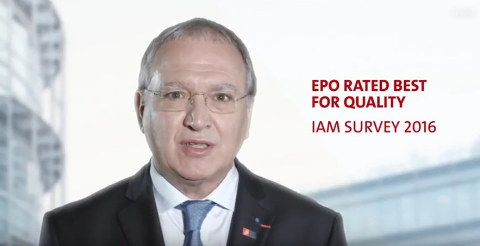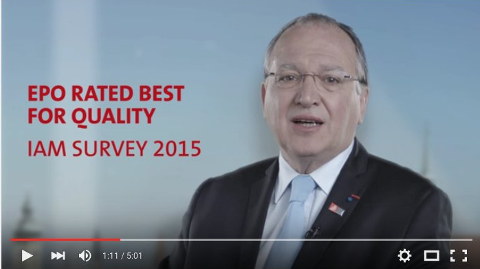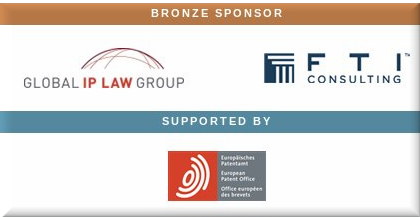

THE quality of patents at the EPO goes in the opposite direction of those at the USPTO. This should be alarming to Europeans. It's purely detrimental, a case of self-harm.
 The sad thing is that the Chairman of the Administrative Council, Christoph Ernst, as well as António Campinos, will just carry on denying the problem. They're simply not interested in facts; all they care about is their careers.
The sad thing is that the Chairman of the Administrative Council, Christoph Ernst, as well as António Campinos, will just carry on denying the problem. They're simply not interested in facts; all they care about is their careers.
"It's hard to ignore the fact that there's still not a word from IAM, the EPO's propaganda arm when it comes to dubious claims about quality..."Michael Loney from the patent maximalists' media finally mentions "German firms’ EPO criticism". He's not alone. Kluwer Patent Blog, amplifier of Team UPC, broke this story, which has thus far attracted close to 50 comments.
It's hard to ignore the fact that there's still not a word from IAM, the EPO's propaganda arm when it comes to dubious claims about quality (made in the form of several publications and even a public talk earlier this month, basically part of the anti-Section 101 lobby -- the section that greatly limits patent scope in the US).
The EPO meanwhile lies yet again (see our response to it from yesterday), then receives press coverage (titled "Patent quality is up, according to EPO quality report"), albeit not without decent rebuttals in the text, e.g.:
Last week, four German law firms wrote a letter to the EPO, expressing their concern over recent developments, specifically the increasing work targets at the office.
The law firms Grünecker, Hoffmann Eitle, Maiwald, and Vossius & Partner wrote that the incentive systems and internal directives appear to be directed at rewarding or even requesting “rapid termination of proceedings” and a “correspondingly higher productivity.
The letter said that while the firms appreciated the timeliness of examination, the “overreaching desire” for high productivity has lead to a range of problems, including issues of quality, scope of protection and inadequately assessed patents.
The EPO’s report mentioned that it had surpassed targets for establishing a comprehensive search and written opinion within six months from filing of the application with the EPO.
The firms noted a a recent petition from EPO examiners that expressed concern over the work targets and how they are affecting patent quality at the office.
[PDF]; it's basically text, not an image (like the above snapshot). Maybe somewhat of an historic item? IAM is on the wrong side of history and has been for years (after it had received payments from the EPO's PR agency, FTI Consulting). ⬆


